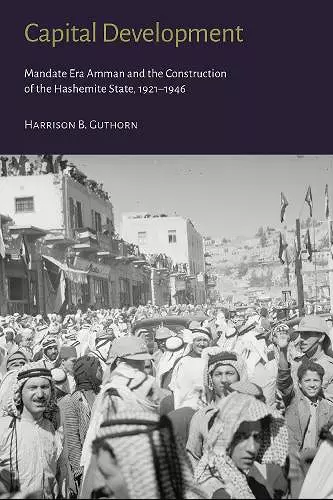Capital Development
Mandate Era Amman and the Construction of the Hashemite State (1921-1946)
Format:Hardback
Publisher:GINGKO
Published:6th Sep '21
Currently unavailable, and unfortunately no date known when it will be back

Amman, the capital of Jordan, contends with a crisis of identity rooted in how it grew to become a symbol for the Anglo-Hashemite government first, and a city second. As a representation of the new centralised authority, in 1921 Amman became the seat of the mandatory government that orchestrated the development of Transjordan. Despite its diminutive size, the city grew to house all the components necessary for a thriving and cohesive state by the end of the British mandate in 1946. However, in spite of its modernising and regulatory ambitions, the Transjordan government did not control all facets of life in the region. Instead, the story of Transjordan is one of tensions between the state and the realities of the region, and these limitations forced the government to scale down its aspirations. This book presents the history of Amman's development under the rule of the British mandate from 1921-46 and illustrates how the growth of the Anglo-Hashemite state imbued the city with physical, political, and symbolic significance.
‘With his book, Harrison Guthorn offers a fresh angle from which to explore the mandate years in Transjordan. He carefully and in great detail reconstructs the process through which the capital Amman became the focal point of the new political entity. His book is both an institutional history of Jordan and a good case study to examine the British colonial rule and official mind. It thus offers a valuable contribution to the historiography of Jordan, as well as to the surging literature on the League of Nations and the mandate system.’Yoav Alon, author of The Shaykh of Shaykhs: Mithqal al-Fayiz and Tribal Leadership in Modern Jordan; ‘As the product of a considerable amount of deep research into archival and secondary source materials, Capital Development makes a compelling argument about the centrality of Amman’s growth to Jordan’s history, both a city and a political capital. It constitutes a most welcome addition to the literature on Jordan as well as that on cities and urbanization in the modern Arab world.’Michael R. Fischbach, author of State, Society, and Land in Jordan.
ISBN: 9781909942509
Dimensions: 234mm x 153mm x 18mm
Weight: unknown
272 pages